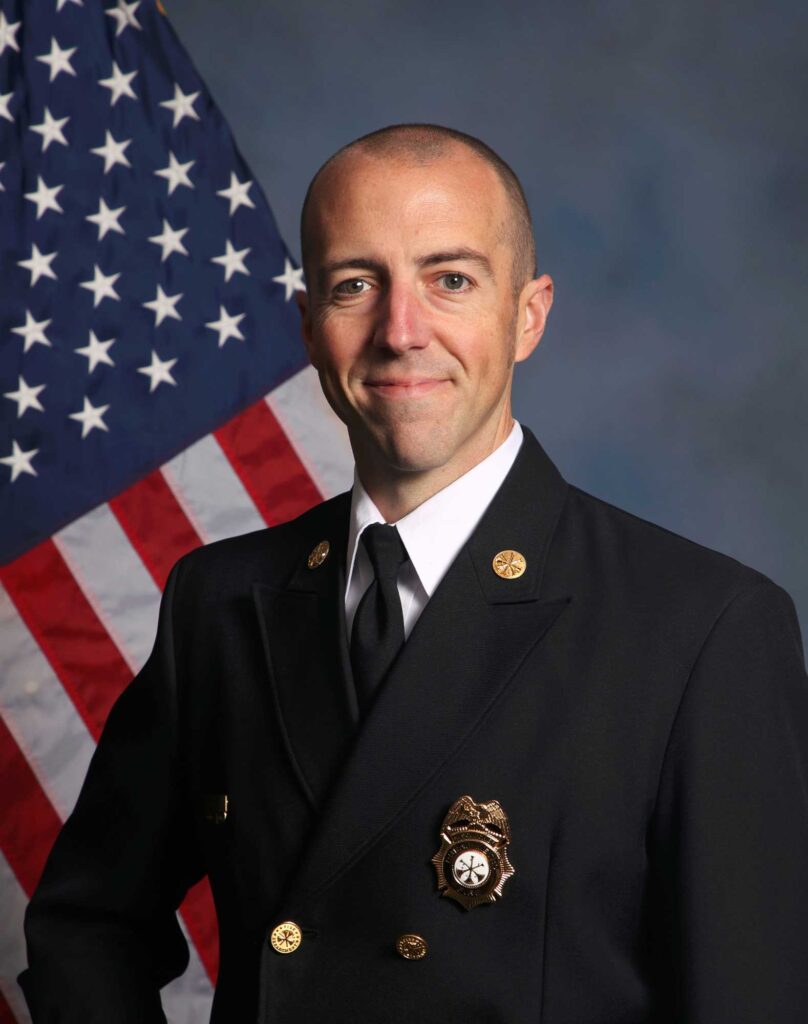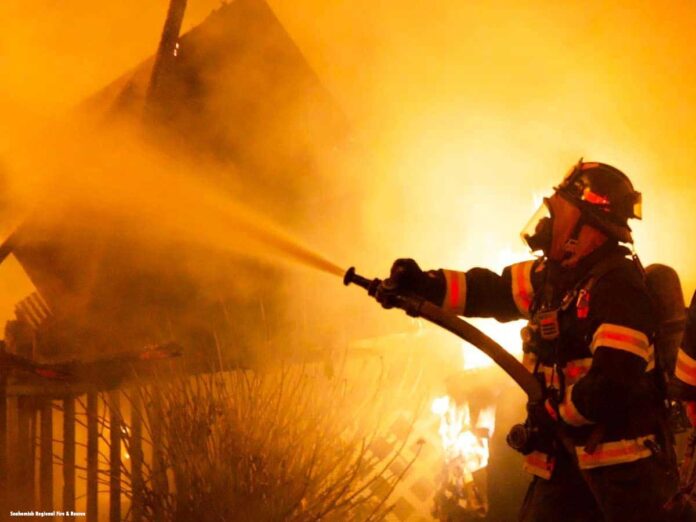Credit: February 7, 2025. By: Brandon Douglas Firefighter Nation
As firefighters, we rely on our tools. From halligan bars to self-contained breathing apparatus to flathead axes, our tools are versatile, dependable, and always ready to help us work through unexpected challenges. Just as we value adaptability and dependability in our fireground tools, we need the same from our mental health and well-being tools. One of the most effective and versatile mental health tools is the time-tested, super-simple pen and paper.
Journaling helps build self-awareness, drives personal growth, and encourages meaningful self-reflection. It provides a means to detach, transforming subjective experiences into tangible words on a page. These 18 inches of detachment make it easier to process experiences, enabling us to become more resilient, present, and grateful in our daily lives.
While it may seem too simple—just a pen and some paper—journaling can profoundly impact your mental health and emotional resilience. Let’s explore how to get started with one of the most straightforward yet powerful tools at our disposal.
QUICK START GUIDE: BUILDING THE HABIT
START SMALL
Building a new habit doesn’t have to be overwhelming. Let go of any preconceived notions of what journaling “should” be. There are no rules, word count, or grammar requirements; just start. Take advice from Atomic Habits author James Clear: keep it simple, make it easy, and aim for consistency. In the beginning, commit to writing just one line per day.
FOCUS ON GRATITUDE
For that one line, make it something you’re thankful for. Write about a moment you appreciated from the day before (assuming you’re journaling first thing in the morning). Dig deep; be specific. Do this consistently, and you’ll notice gratitude profoundly affects your mindset. Cultivating it through journaling will help you stay grounded, become more resilient, and be more and more aware of all the good around you.
MAKE IT EASY
Set yourself up for success by placing your journal somewhere you’ll see at the same time every day—on your nightstand, by the coffee maker, or on your desk. Make journaling part of your existing routine so it’s easy to remember and even easier to accomplish.
BE CONSISTENT
Again, just one line per day, every day. If you miss a day, no worries. Just try not to miss two in a row. Over time, this small, daily habit will grow into a practice you rely on to process your experiences, improve your mental fitness, and cultivate a greater sense of well-being.
A NOTE ON GRATITUDE
When starting, focusing on gratitude can be especially beneficial. Writing about something you’re grateful for each day shifts your mindset, helping you see the positive aspects of your life even during difficult times. Over time, this practice rewires your brain to focus on what you appreciate rather than what you lack.
For example, you might write about the camaraderie of your crew after a challenging call, the quiet calm of the apparatus floor just before shift change, or the satisfaction of a job well done. These moments, when documented, become anchors of positivity that help you navigate the more challenging days.
IT’S A JOURNEY, NOT A DESTINATION
Building a journaling habit takes time, but the rewards are worthwhile. What begins as a simple, one-line-a-day habit can evolve into a powerful practice that fosters clarity, gratitude, and resilience.
Over time, journaling will become a foundational tool you rely on—not just in your work as a firefighter but in every aspect of your life. It will help you navigate the challenges and joys of being a parent, spouse, friend, and human being.
Just as you wouldn’t face a fire without the right tools, don’t face life empty-handed. Journaling is a dependable, proven, and adaptable tool for strengthening your most significant asset: yourself. Start today. One line. One moment of gratitude. One step toward a better you.
About The Author: Brandon Douglas has 22 years in the fire service and is the division chief over training and development for Rural Metro Fire in Knox County, Tennessee. He holds a bachelor’s degree in psychology from American Public University and is working toward a master’s in organizational leadership through the University of the Cumberlands.

